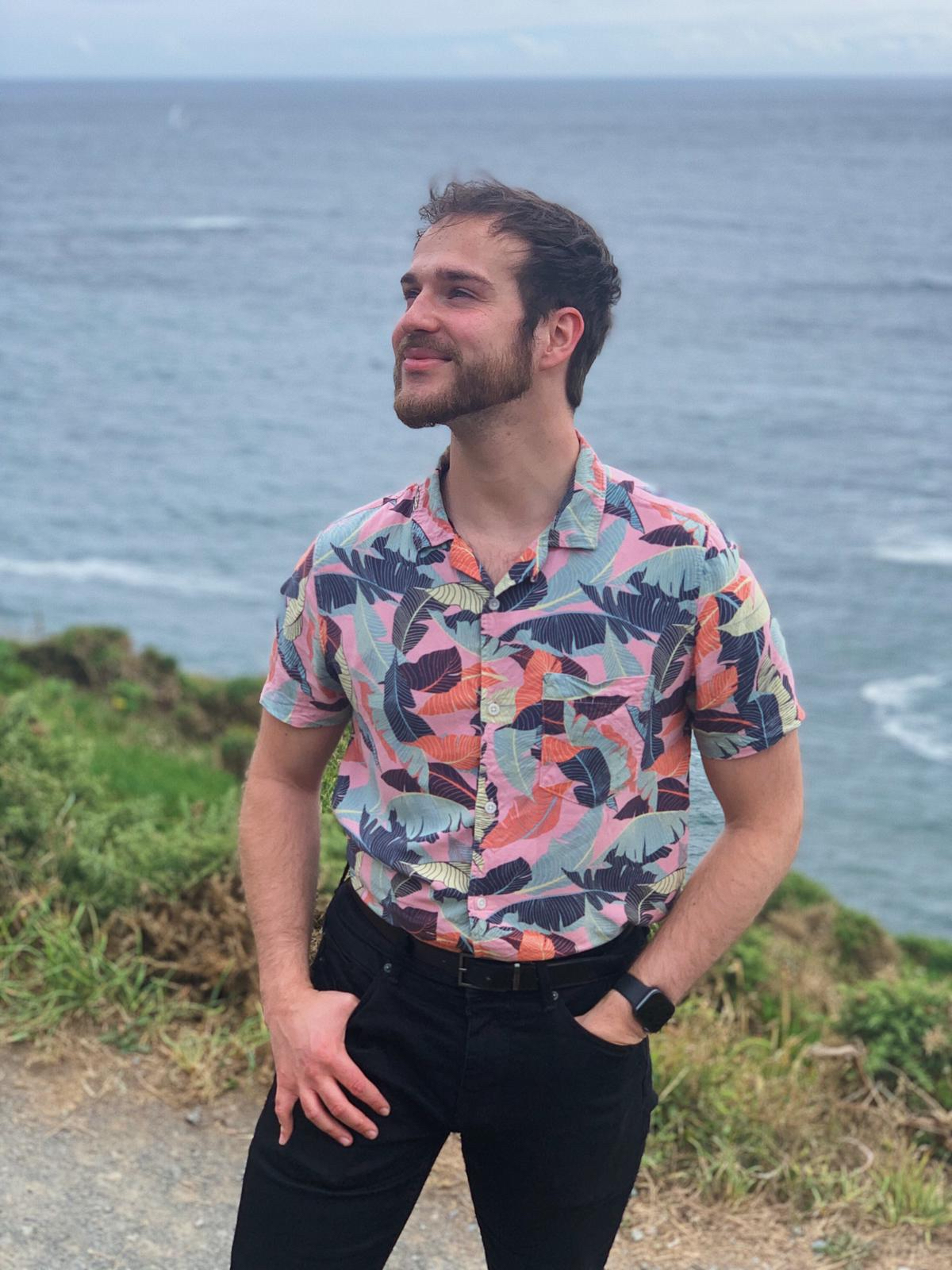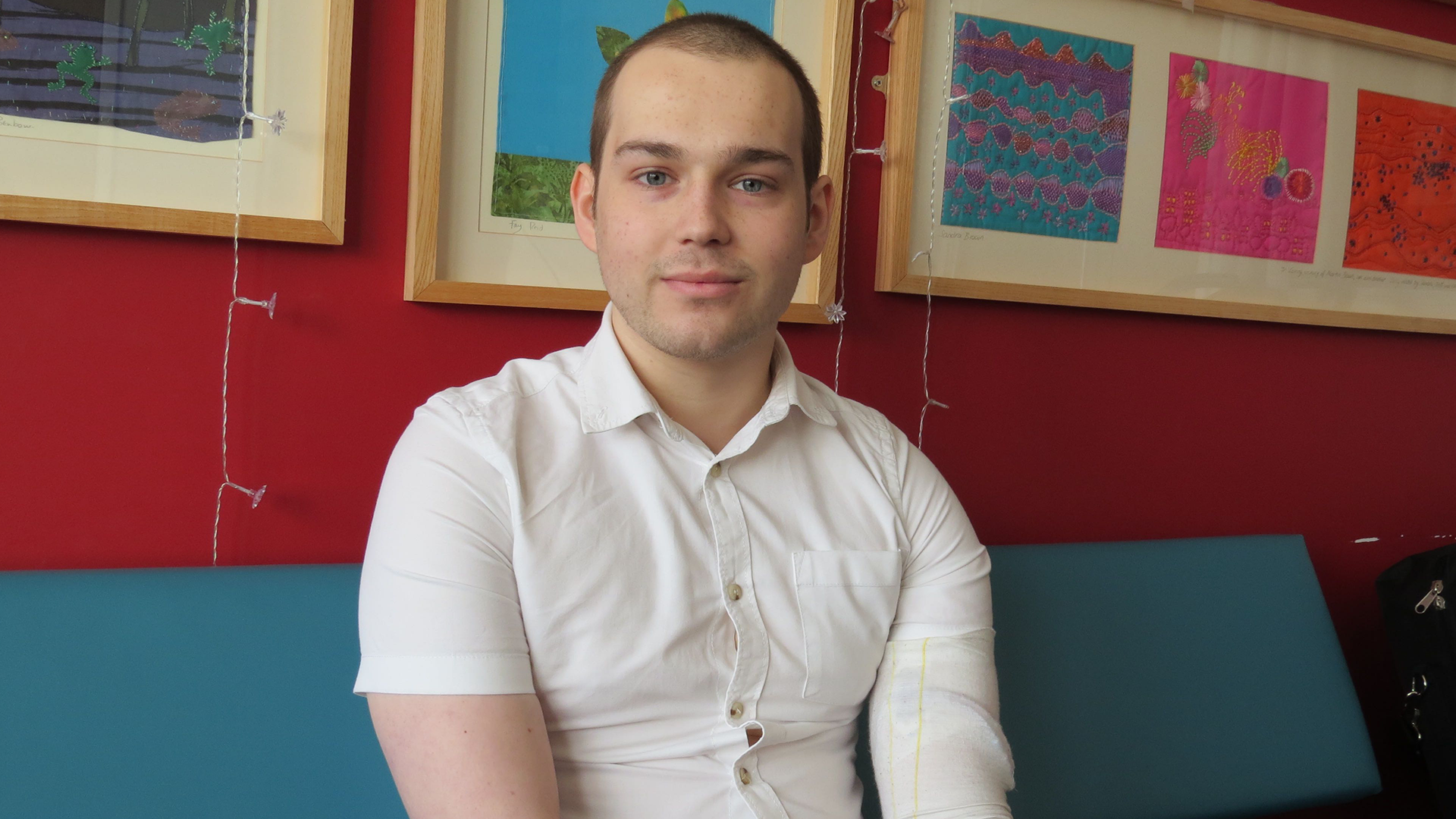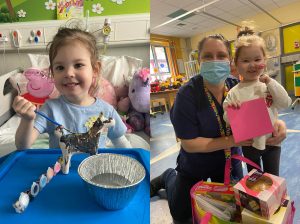
Patient Case Study: Madeline Hawkins
Madeline Hawkins was diagnosed with Chronic Myeloid Leukaemia (CML) back in June 2012 after she was referred for additional blood tests following complains of pain in her feet.

It’s now 5 years since I was diagnosed with blood cancer and thanks to the treatment I was able to receive, I am back living my life. It is not the life I had expected back when I was 19 years old, it’s very different to what I wanted to do but I remain one of the lucky ones, so many I met were not so lucky.
I am now into my final year of University having achieved a first in my second year and I’m now an accredited Blue Prism Automation Developer. I’m a year on from having my hip replaced (after side effects of my treatment) and it’s going well allowing me to get back swimming and doing some of things I love.
Without Cure Leukaemia I might not be here and that is why it is so important we continue supporting charities like them to give more patients hope for the future.
‘We must stop luck being the deciding factor.’
Teenager emotionally shares his battle with blood cancer.
In July 2015, sporty, 19-year-old Jaymz Goodman from Telford in Shropshire had just finished taking his A-Levels, working in a sweet shop and training for a ½ marathon. He had undergone laser eye surgery because he wanted to become a pilot in the RAF and even had long-term ambitions to become an astronaut!
But during that month Jaymz’s life was shattered when he was diagnosed with T-Cell acute lymphoblastic lymphoma – a form of blood cancer. A specialist research nurse called Gill Marshall, whose position is funded by blood cancer charity Cure Leukaemia, treats Jaymz. To mark International Nurses Day (May 12th) Jaymz has shared his story in the hope more funds and awareness can be raised for the charity.
Jaymz has set up a JustGiving page to raise funds for Cure Leukaemia’s £3million campaign to expand the Internationally renowned Centre for Clinical Haematology at the Queen Elizabeth Hospital, Birmingham. This capital project would establish The Birmingham Institute of Haematology, doubling the capacity of the facility and hastening progress towards finding a cure for all forms of blood cancer within our lifetime.
This is Jaymz’s story in his own words:
“My life was shattered in the space of a few weeks that felt like a lifetime. It started when I developed a hoarse cough that I couldn’t shift for two weeks. My GP prescribed me an inhaler but when that didn’t help I started to become breathless. I was then given antibiotics but again, the situation kept getting worse. When I was having difficulty breathing I went for an x-ray.”
“I was with my mum when we had the results of the x-ray and we were told that I had a 14cm growth in my chest. The clock ticked that little bit louder and I felt as though I was distanced from the room as I fell back into my chair.”
“I looked at my mum who had a terrified look in her eye and we were told I needed a CT scan. It was booked in, but one morning I nearly choked on my breakfast at which point my dad said we were going to A & E.”
“I had never had an injection before that day but I knew I was going to have to get used to them. A day of tests passed and after a biopsy at Stoke, I was referred to Shrewsbury, who initially thought it was an enlarged gland. Then we had a phone call from the Hospital.”
“They told me I had lymphoma. I had cancer. I sat on the stairs at home crying my eyes out and I just remember my mum telling me ‘it will be ok’.”
“I remember sitting down my girlfriend’s family and telling them and that was hard but the more you say, “I have cancer” the easier it gets for some reason. I had further tests at the Queen Elizabeth Hospital (QE), Birmingham and I was told my blood was 45% leukaemic; nearly half of my blood was cancerous.”
“I now knew what was ahead of me and I was told that the treatment would be gruelling, but I would describe it more like an onslaught. It started at the QE with a 6-week course of treatment. ”
“First were steroids. I gained two ½ stone over the six weeks, I had hallucinations, mood swings and at one point my parents even though I had Tourette’s! The side effects were horrible. One treatment even made me lose the sensation in my fingertips.”
“With the second treatment, it made me feel like my heart and lungs were full of water. I was in tremendous pain and then I threw up for four hours. I was being sick every morning thereafter and I was struggling to even walk to the toilet. I had to have spinal injections, which are every bit as horrible as they sound as well as bone marrow tests.”
“Bone marrow tests involve the biggest needle you can imagine being plunged into your pelvis. The only way I can describe it is like the pain of breaking a bone, every time.”
“The next treatment was called methotrexate. It was bright yellow and was pumped into me just before New Year 2015. 12 hours later it was coming out of me everywhere. I won’t go into details but you can imagine. I had nosebleeds, couldn’t eat and mouth ulcers developed continually. I was terrified.”
“For the next two cycles of methotrexate I was given a cocktail of anti-sickness drugs, which worked, but I was asleep for four days in a row. I barely woke up; it was bizarre.”
“Of all the treatments I have described above the worst was yet to come. I needed a double dose of steroids. After six days, surprisingly, I was feeling fine. It was on the 7th day it hit me.”
“I was having a coffee with a former colleague when I started to get a pain in my spine. It was really uncomfortable but eased after a while. After a lie-down, I went to the cinema later with my mum and we had a KFC afterwards. At 7 pm I was in bed and the pain returned and it was so intense that I passed out.”
“The next thing I remember was that I woke up in the middle of the night wailing with pain. By around 3 am I remember curling into a ball with tears rolling down my face, I couldn’t move my legs anymore.”
“That was the moment I thought I’d be in a wheelchair forever, it was the scariest moment of my life.”
“For three days my legs wouldn’t work properly. It was humiliating. I had to prop myself to go to the toilet, I had never been so low.”
“Then, all of a sudden, the pain went. Just like that.”
“My parents have been my rocks throughout this whole ordeal. My dad has spent the whole of his life protecting me from harm but suddenly he had to allow this treatment to hurt me. It was such a mental battle for the whole family but we knew it had to get worse before it got better.”
Jaymz’s dad, Paul, has held the family together through an incredibly difficult few years. He said: “It was like your worst nightmare, you simply cannot imagine what it is like to be told your child has cancer. I honestly don’t know how I dealt with it, it was a case of just taking one day at a time.”
He continued: “I felt powerless. I was a passenger on a journey to an unknown destination. One month after my wife celebrated one year clear of breast cancer, Jaymz was diagnosed.”
Jaymz was advised to freeze his sperm before his treatment began as the process could make him infertile. He said:
“I did bank my sperm before the treatment began because I wanted to have my own family one day. However, after going through this experience and seeing the pain it has caused my parents I have decided I don’t want children, on the off chance it could be hereditary. There is no way I could watch my child go through this. That is why finding a cure for leukaemia is so important, this disease is so horrible.”
“Cure Leukaemia’s purpose is, ultimately, to eradicate this disease once and for all and that is why it is such an important charity. Cure Leukaemia funds my specialist research nurse, Gill Marshall, and I could not have got through this without her. She is always there for me on the phone; she fights my battles for me and makes sure I receive the right treatment at the right time. We need more people like Gill.”
Paul continued in praise of Gill: “It is only when you are directly affected by diseases like this you realise how important charities like Cure Leukaemia are. Gill has been Jaymz’s close friend throughout his treatment. She’s been positive when he has been down and tough when he has needed geeing up. Gill has been fantastic.”
In December 2015, Jaymz was told he was in full remission.
“I know I still have a long journey ahead of me and lots more gruelling treatment, but when I was told I remember my mum bursting out with laughter. She simply didn’t know how to react to it and it was such a wave of emotion for her and all of us. I cried with joy. I thought, ‘I’ll have my life back, I am going to be ok.’
“I’m fortunate that my treatment worked. A friend of mine who I met in hospital who had the same diagnosis as me passed away a few months ago. I hope one day it isn’t down to luck, because my friend would still be alive and his parents would still have their child.”
“Thanks to charities like Cure Leukaemia I can now look ahead to the rest of my life. The RAF has told me that becoming a pilot is still possible and I really do have aspirations to be an astronaut.”
“More needs to be done to help charities like Cure Leukaemia. We all need to stand together and help beat this disease once and for all. I am one of the lucky ones, so many are not, so we need to stop luck being the deciding factor.”


Madeline Hawkins was diagnosed with Chronic Myeloid Leukaemia (CML) back in June 2012 after she was referred for additional blood tests following complains of pain in her feet.

Willow was diagnosed with ALL in March 2023, so parents Craig, Jess and 30 other walkers will complete a symbolic fundraising walk